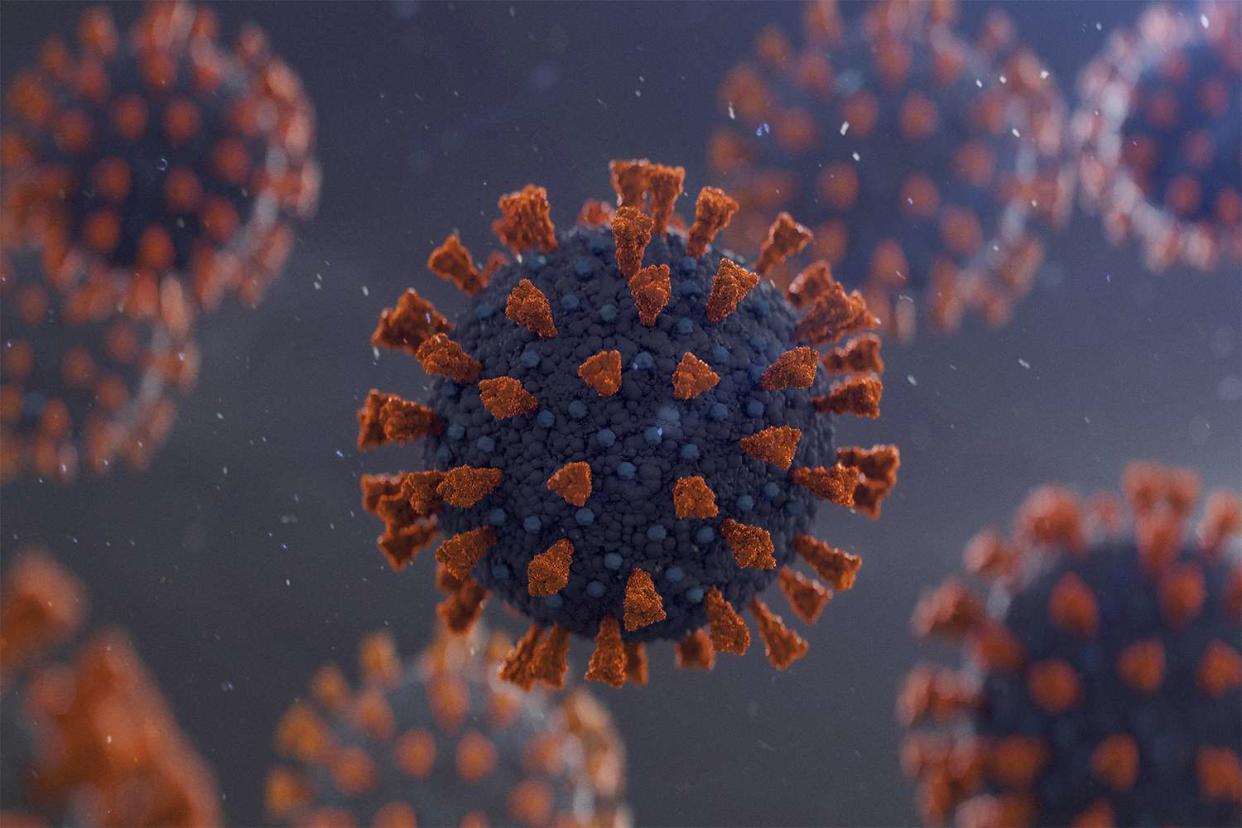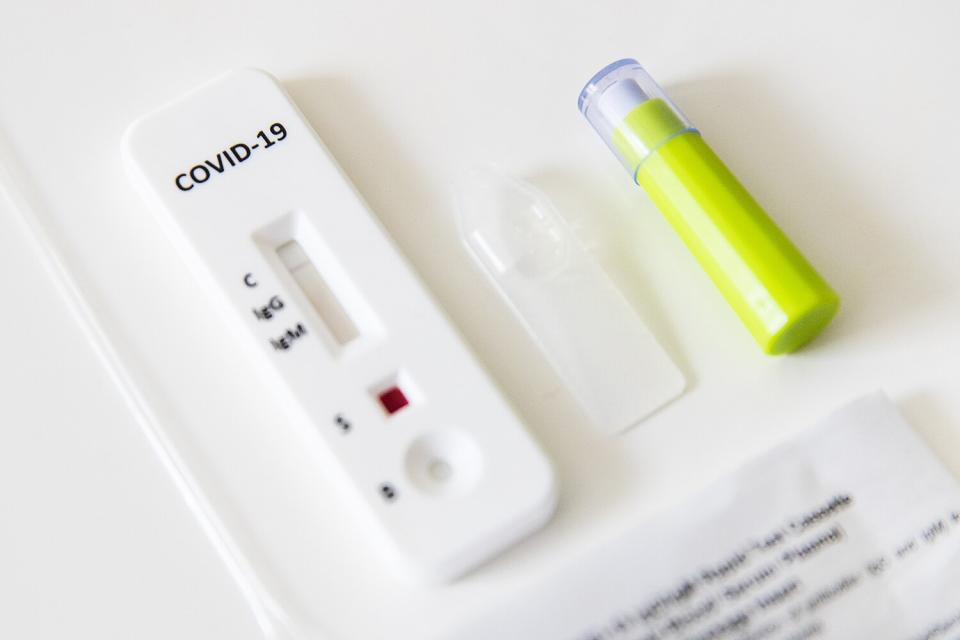New Study Suggests T-Cells from Common Cold Can Help Protect Against COVID Infection

- Oops!Something went wrong.Please try again later.
getty Coronavirus COVID-19
T-cells triggered by the common cold could be a powerful weapon against the coronavirus, the findings of a new study state.
On Monday, Imperial College London released research on the topic in the journal Nature Communications, suggesting the connection could help scientists develop vaccines capable of fighting against multiple variants of COVID-19 in the future.
According to CBS News, the study examined 52 household contacts consisting of individuals who contracted COVID-19. Of the group, 26 people who did not get sick but were exposed to the virus had "significantly higher cross-reactive T-cells" than those who did get sick with COVID, per the outlet.
In the study, researchers elaborated on how higher levels of T-cells protected participants who were exposed to the viral disease.
"We observe higher frequencies of cross-reactive, and nucleocapsid-specific secreting memory T-cells in contacts who remained PCR-negative despite exposure, when compared with those who convert to PCR-positive; no significant difference in the frequency of responses to spike is observed, hinting at a limited protective function of spike-cross-reactive T-cells," an abstract read.
"Our results are thus consistent with pre-existing non-spike cross-reactive memory T-cells protecting SARS-CoV-2-naïve contacts from infection, thereby supporting the inclusion of non-spike antigens in second-generation vaccines," it continued.

Adam Glanzman/Bloomberg via Getty
RELATED: 6 Year Old with Epilepsy Hospitalized for Weeks with COVID-19: 'It's Not Safe for All Children'
Professor Aljit Lalvani, one of the authors of the study, stressed that those who have previously had the common cold can still contract COVID-19, however.
"The conclusion should not be that if you've had a common cold you don't need to worry about contracting COVID-19," Lalvani told CBS.
"What the study tells us is that there is a mechanism, a natural mechanism of natural protective immunity, that is triggered by previous common cold coronavirus infections," he explained. "… So the point is not to rely on that, but to exploit and to harness that naturally occurring protective immunity to develop better vaccines."
RELATED: US Breaks COVID Record at Nearly Half a Million Cases in a Single Day

Getty A child getting vaccinated
In the fight against COVID-19, the Centers for Disease Control updated its recommendation for the Pfizer/BioNTech Covid-19 vaccine booster to include children 12-17 years of age last week.
"It is critical that we protect our children and teens from COVID-19 infection and the complications of severe disease. Today, I endorsed ACIP's vote to expand eligibility and strengthen our recommendations for booster doses," CDC Director Dr. Rochelle Walensky said Wednesday.
"We now recommend that all adolescents aged 12-17 years should receive a booster shot 5 months after their primary series. This booster dose will provide optimized protection against COVID-19 and the Omicron variant," she said. "I encourage all parents to keep their children up to date with CDC's COVID-19 vaccine recommendations."
As information about the coronavirus pandemic rapidly changes, PEOPLE is committed to providing the most recent data in our coverage. Some of the information in this story may have changed after publication. For the latest on COVID-19, readers are encouraged to use online resources from the CDC, WHO and local public health departments. PEOPLE has partnered with GoFundMe to raise money for the COVID-19 Relief Fund, a GoFundMe.org fundraiser to support everything from frontline responders to families in need, as well as organizations helping communities. For more information or to donate, click here.

